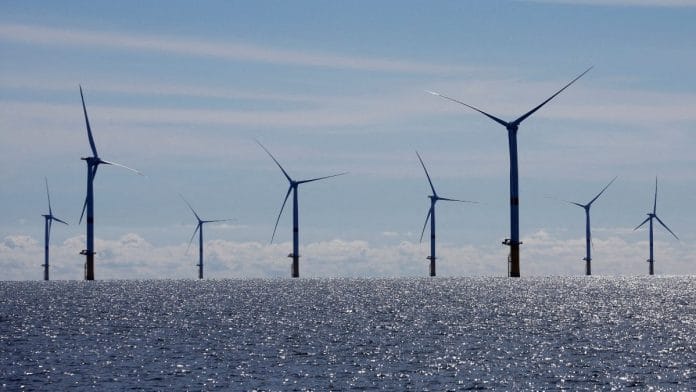London: Nearly two-thirds of European companies do not have any revenue that meets the EU’s list of climate-friendly activities, and half have no planned capital expenditure that can be considered green, according to a new analysis published on Thursday.
The European Union’s taxonomy classifies economic activities that can be marketed as sustainable to improve transparency and encourage investment towards fighting climate change.
Companies are now required to disclose how much of their revenue is in line with the taxonomy. Aligning with the green criteria means revenues generated from climate-friendly industries such as renewable energy, or other industries that meet certain criteria – for example, a steel plant that produces emissions below a certain level.
An analysis by sustainability data firm ESG Book of 683 companies, representing 40% of European market capitalisation, found that the average share of company revenue aligned with the taxonomy was 8% while for capex – which captures corporate long-term spending plans – it stood at 13%.
More than 60% of European companies studied had zero revenue aligned with it, and 50% had no aligned capex, ESG Book found.
“The scale of the challenge [towards a lower-carbon economy] is made much much clearer,” said Leon Saunders Calvert, ESG Book’s chief product officer. “For many businesses that have to go through a transition you would want and expect more of their capex being made in a way that drives towards alignment.”
He added that the findings underlined the extent to which, for example, automakers still make far more money from combustion engines than electric vehicles, and energy firms from fossil fuels rather than renewables.
Analysts say data generated from the EU taxonomy – one of several sustainability classification systems emerging globally – is useful because it shows how and where companies are making money. Most environmental, social and governance (ESG)-related data measures companies’ exposure to ESG risks.
Very low levels of alignment partly reflect the newness of the regulations and Calvert said reporting should improve with time but the “reality is that alignment is low”.
The taxonomy does not capture revenues which are climate-neutral, and Calvert cautioned that companies without much revenue meeting the green criteria are not necessarily a problem.
ESG Book’s analysis also found that six companies had 100% of their revenue aligned including an Italian energy provider with natural gas in its baseload.
(Reporting by Tommy Reggiori Wilkes, editing by Deepa Babington)
Disclaimer: This report is auto generated from the Reuters news service. ThePrint holds no responsibilty for its content.
Also read: EU plans to buy new firefighting planes, as climate crises worsen






